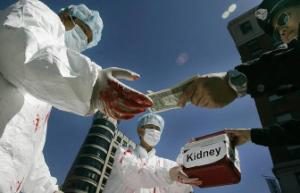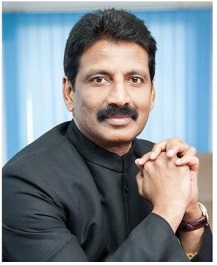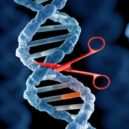THE PROBLEM OF ILLEGAL ORGAN TRAFFICKING

In the fictional novel “Coma” written by Robin Cook and made into a movie by Michael Crichton, a quizzical physician (Genevieve Bujold) discovers that nefarious seniors are drugging healthy patients into a comatose state, killing them, and selling their organs to wealthy patients in desperate need of transplants. She confronts her avaricious doctor lover (Michael Douglas) and gets behind the sinister conspiracy. Similarly, in the book “ The Baby Train “ written by Jan Brunvand a subject wakes up in a hotel bathtub to discover that one of his kidneys has been removed.
Not just in fiction, this has been playing out in real life too, for instance, in January of 2013, Kendrick Johnson, a Georgia teen, was found dead in his school under mysterious circumstances. Initially, it was resolved to be a freak accident of death due to suffocation as a result of convoluting in a gym mat. Exhumation of the body six months later led to the discovery of a corpse stuffed with newspaper inside. The brain, heart, lungs and liver of the boy were missing.FBI investigation into the matter led to stunning revelations.
Recently in China, a missing 6-year-old boy was found weeping in a field, with both eyes removed, presumably for the corneas. In China, organ brokers are mainly targeting young people in Internet forums with slogans such as “Donate a kidney, buy the new iPad.” In April 2011, Wang Shangkun mother in Anshui, Central China discovered that her 17-year-old son had sold his kidney and had bought an iPad and iPhone with the money. Wang now suffers from a decreased level of kidney function and other complications.
 Similarly, in India, a scan taken after a four-year-old girl underwent surgery in 2015 to remove an infected kidney in a reputed hospital in Delhi left the girl’s father shell-shocked when it revealed the disappearance of the other organ as well. Whatever the reasons might be for the missing kidney, the incident brings into focus the business of illegal transplants and organ trafficking.
Similarly, in India, a scan taken after a four-year-old girl underwent surgery in 2015 to remove an infected kidney in a reputed hospital in Delhi left the girl’s father shell-shocked when it revealed the disappearance of the other organ as well. Whatever the reasons might be for the missing kidney, the incident brings into focus the business of illegal transplants and organ trafficking.
Three major kidney trafficking rackets extending through several states and neighbouring Nepal were busted in India since June 2016. Two of them involved staff of important private hospitals in Delhi, while the third a fake doctor and his family operated one of India’s most prominent and longest such racket. The lynchpin of the most unparalleled racket was Amit Kumar, 65, who with no training in medicine or surgery, along with another person performed 50 illegal transplantations in three months before being nabbed.
One of the leading causes behind the demand for donor organs appears to be the lifestyle shift that is taking place in India, which has introduced type 2 diabetes mellitus, obesity and the metabolic syndrome in epidemic proportions.
An estimated 98 million Indians are likely to have type 2 diabetes by the year 2030. Untreated diabetes leads to organ failure, necessitating a transplant.
With life expectancy increasing and lifestyle diseases affecting people at younger ages, the country is witnessing widespread prevalence of chronic diseases with concomitant organ failure.
 But there are not enough donated organs to go around. As of 2018, about 114,000 people were reported to be waiting for a new organ in the United States. On average, an individual has to wait three and a half years for an organ to become available for transplant.
But there are not enough donated organs to go around. As of 2018, about 114,000 people were reported to be waiting for a new organ in the United States. On average, an individual has to wait three and a half years for an organ to become available for transplant.
And so the underground trade continues to persist. It has indubitably decreased but it is still there. About three lakh-3.5 lakh patients need transplants in India at any given time.
Tamil Nadu alone accounts for around 3,500 patients with end-stage organ failure registered in the waiting list for a kidney transplant with another 400 patients waiting for liver transplant. In 2007 Tamil Nadu state was considered the hub for illegal kidney transplant racket when it was rocked by a scandal.
Hence the world over there is a flourishing and macabre black market for body parts. The World Health Organization estimates an illicitly obtained organ is sold every hour through underground networks. The kidney is the most commonly sought-after organ, and kidneys can fetch up to $2000000. Reports estimate that 75% of all illegal organ trading involves kidneys.
The liver trade though prominent with prices ranging from $4,000 but to $157,000 is less common due to a problematic postoperative recovery period that hinders donors. Hearts are available for $1200000, skin a mere 10 per square inch, a shoulder $5500, and a pair of eyeballs for $1,500.
Diabetes and hypertension are the most significant cause of kidney failure in the country, accounting for 40-60% of chronic kidney disease.In India, around 200,000 people need a kidney every year, but only approximately 3% of the demand is met. There is thus a demand and supply problem.
Cadaveric donations and brain-dead victims of road accidents could help in bridging the demand for organs in a big way if tapped into adequately. More than 148000 people die annually from road accidents, of them close to 65% are from severe head injuries which translates to around 90,000 people in hospitals with “brain death” each year.
According to figures published in the “Indian Journal of Anaesthesia” in 2013, of the 205 patients declared brain dead at the AIIMS Trauma Centre in the past five years, only 10 became potential organ donors.
Before 1994, India was one of the largest kidney transplant centres in the world as low costs and high availability brought in business from around the globe. In 1994, the country passed the Transplantation of Human Organs Act (THOA), banning commerce in organs and promoting the posthumous donation of organs.
The act mentioned above allows only a “near relative”— to be a living donor. It also allows “swap’ donations, and permits donation from “affection or attachment towards the recipient or for any other special reason” .
China since 1980s, has obtained bulk of its transplanted organs from executed prisoners. One source estimated that China killed at least 4,000 prisoners in 2006 to supply approximately 8,000 kidneys and 3,000 livers for foreign buyers.
Iran is the only country that has no waitlists for kidney transplantation as it is the only country that allows organs to be bought and sold for money, which has been hailed as the safe organ trading model by many.
Within the European Union, organ donation is regulated by member states. As of 2010, 24 European countries have some form of presumed consent (opt-out) system, with the most rugged and limited opt-out systems in Spain, Austria, Belgium and Wales yielding high donor rates.The UK, on the contrary, has decided on an opt-in system. India could borrow from the Spanish system of organ donations.
Spain leads the world with 35 organ donors per million people, compared to Britain’s 27, US’s 26 and Australia’s 11 donors per million and India’s miserly 0.16.
Multi-Organ Harvesting Aid Network with an acronym MOHAN Foundation was established in 1997 in Tamilnadu by a group of practising medical professionals and their friends to promote ‘Organ Donation’. It has been tirelessly working as a support group of patients, physicians and the public as well as doing an excellent job coordinating the entire process of organ donation, retrieval and transplantation.
As there is not much awareness regarding organ donation, to create awareness, I ran a full and a half marathon for the foundation this year, and I am doing a fundraiser by running a full marathon for the foundation during the forthcoming Chennai Marathon on January 6, 2019, and Mumbai Marathon on January 20, 2019.
The funds so raised could help the foundation run its activities as well as equip it with drones to swiftly transport the donated organs to the hospitals without having to rely on a green corridor. The foundation has also been advocating the cause of the inclusion of the ‘clause of organ donation in the driving license’ which could save many lives.
Tamil Nadu has been leading the nation in organ donation with 4,938 organs transplanted in the past eight years, according to Transplant Authority of Tamil Nadu (TRANSTAN). Tamil Nadu is also the first Indian state to make certification of brain death compulsory, successfully create a green corridor to transport an organ, and initiate discussions about organ donation commonly in the society.
The total organ donations in our country have been surging as well, and it has gone up from 1,149 in 2014 to 2,870 in 2017. Including a two-and-a-half times increase in kidney and liver donations, not to mention a whopping 6.5 times rise in heart donations.
Lastly, the use of body parts to benefit others is deeply embedded in Hindu Mythology. The earliest depiction of xenotransplantation is the case of Lord Ganesha, wearing an elephant head. Besides, our scriptures tell us that our body is mortal and soul is eternal. If so, by donating one’s organ, one’s body too takes on an eternal quality. The organs of our body continue to live on after we die. Even if we are ill, or old, we all have the gift of life to give another. We can provide a more excellent gift than we ever could when we were alive. It’s by far the ultimate spiritual gift we can offer.
Source from: epaper/deccanchronicle/chennai/dt:02.01.2019
 Dr.K. Jayanth Murali is an IPS Officer belonging to 1991 batch. He is borne on Tamil Nadu cadre. He lives with his family in Chennai, India. He is currently serving the Government of Tamil Nadu as Additional Director General of Police, DVAC.
Dr.K. Jayanth Murali is an IPS Officer belonging to 1991 batch. He is borne on Tamil Nadu cadre. He lives with his family in Chennai, India. He is currently serving the Government of Tamil Nadu as Additional Director General of Police, DVAC.


